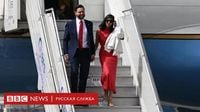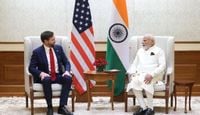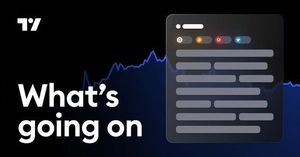US Vice President Jay Dee Vens arrived in New Delhi on April 21, 2025, for a four-day visit, amid escalating trade tensions between the United States and China. The primary aim of this visit is to strengthen bilateral ties, promote a trade agreement between Washington and New Delhi, and prevent the introduction of American tariffs that could impact Indian goods.
According to ABC News, Vens is set to meet with Indian Prime Minister Narendra Modi on the first day of his visit. The discussions are expected to revolve around key aspects of bilateral relations that were initiated during Modi's visit to Washington in February, where he met with President Donald Trump.
The United States remains India’s largest trading partner, and both nations are currently negotiating a trade agreement that aims to more than double their bilateral trade to $500 billion by 2030. The potential deal could significantly enhance both economic and diplomatic relations between the two countries.
Vens’ visit comes at a crucial time, as the Trump administration's tariff program previously affected India, exacerbating the ongoing trade war with China, which is considered a strategic rival to India in the region. The Indian Ministry of Foreign Affairs indicated that Modi and Vens would discuss the progress in bilateral relations and exchange views on key regional and global issues.
Upon his arrival at Palam Airport in New Delhi, Vens was welcomed with traditional Indian classical dances. He traveled from Rome, where he had met with Pope Francis, and is accompanied by his wife, Usha Vens, who is of Indian descent, their three children, and representatives from the US administration.
Immediately after arriving, the family visited the Akshardham Hindu temple, a significant cultural site in Delhi. As part of their cultural program, they are also scheduled to visit the Taj Mahal and Amer Fort, both UNESCO World Heritage Sites.
India is a crucial strategic ally for the United States in the Indo-Pacific region, actively participating in the Quad format alongside Japan and Australia, which serves as a counterbalance to Chinese influence. Trump is expected to visit India later this year for a Quad leaders' summit, further solidifying these ties.
Modi has maintained a working relationship with Trump since his first presidential term, and Vens’ visit is viewed as a step towards deepening this cooperation. India has expressed a willingness to purchase more oil, energy resources, and defense equipment from the United States, aligning with Washington's expectations.
However, the backdrop of Vens’ visit is complicated by Trump's previous imposition of 26% tariffs on a range of Indian goods. Although some of these measures have been suspended, Trump has referred to India as the "tariff king" and a "violator of trade rules." For India, securing a trade agreement is particularly critical, as it risks facing tariffs in sensitive sectors such as agriculture, the food industry, auto components, medical devices, and jewelry.
As Vens engages in discussions with Modi, there are mixed feelings within India regarding the American Vice President's visit. The All India Kisan Sangharsh Coordination Committee (AIKS), the largest and oldest farmers' union in India, has called for nationwide protests against the proposed trade deal, arguing that trade liberalization could undermine farmers' incomes, particularly in the dairy sector. AIKS, which is associated with the Communist Party of India, boasts over 16 million members and has accused US Trade Minister Govard Luthnick of "blackmail" to include India's heavily subsidized agricultural sector in the deal.
In addition to trade concerns, there is discontent regarding the American visa situation for Indian students and technology workers. Many visas are frequently annulled, with reports indicating that half of the recent visa cancellations for foreign students were for Indian nationals.
Vens, known for his assertive foreign policy approach, has not shied away from controversial statements. During a recent European tour, he criticized allied nations for their defense spending, sparking backlash. In March, while in Greenland, he controversially stated, "Greenland should be ours. This is not a question of 'How do you think, can we do without it?'" This assertiveness may play a role in how his visit is received in India.
The upcoming discussions between Vens and Modi are crucial, especially as both nations aim to finalize a trade agreement that could significantly impact their economies. With the deadline for Trump's 90-day pause on new tariffs approaching on July 9, 2025, officials in New Delhi are eager to solidify a deal that could prevent further economic repercussions.
As both leaders prepare for their meeting, the stakes are high. With India's trade balance heavily favoring it—approximately $45 billion—there is pressure on both sides to reach a mutually beneficial agreement. The outcome of this visit could shape the future of US-India relations and their respective positions in the global economic landscape.
In summary, Vens’ trip represents a critical moment for US-India relations, with the potential to reshape trade dynamics and strengthen alliances in the face of growing challenges from China. As the world watches, the dialogue between these two nations may pave the way for a new era of cooperation.





